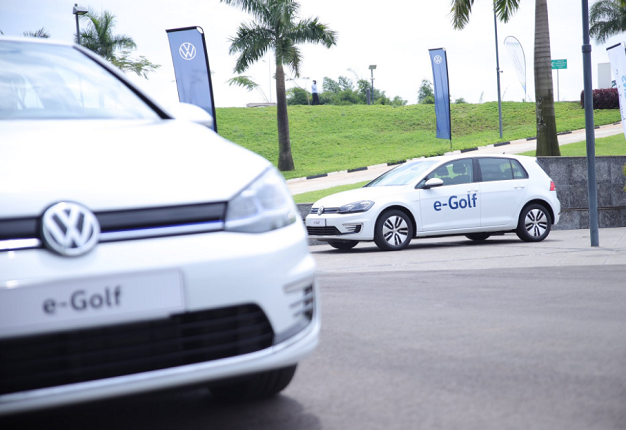VW has committed to a battery-powered future vehicle line-up, yet South Africa remains an idling location for the brand’s electrification strategy.
Despite a storied history, strong customer loyalty and sophisticated manufacturing facilities in South Africa, the proving ground for VW’s electric vehicle deployment in Africa, is Rwanda.
Global distribution
Although the new Golf 8 has been revealed and will commence distribution to select global market next year, VW is still producing its current eGolf. But we can’t get any.
READ | Volkswagen hands over 50 e-Golf cars
Despite eGolf not being available to South Africans, VW has now committed to distributing 50 eGolfs within the Rwandan market if the pilot project is a success, to test the operational realities of a battery-powered vehicle in one of the world’s most densely populated countries. For now, Rwanda has four electric Golfs.
Rwanda has attributes which make it suitable for electric mobility adoption. It is a small country, with minimal distances between towns. Point to point the largest distance in Rwanda is 248km, whilst in South Africa, just the N2 alone stretches for 2255km.
With the eGolf’s range of 230km, you can theoretically connect most of Rwanda’s towns. South Africa remains a tantalising yet frustrating point of entry for electric vehicles in Africa.
In terms of customer awareness, purchasing power and the sheer reach of electricity distribution, South Africa has no rival on the continent. Yet the regulatory environment is unwelcoming.
Volkswagen headquarters would need a large guarantee of confirmed orders before the new I.D 3 will even be considered for our local market.
Vast comparisons
Eskom remains an enormous issue for any economic planning or vehicle electrification strategy in South Africa. The government also appears unmotivated to structure any concrete incentives for electric vehicles in South Africa.
The potential loss of fuel tax revenue is a real consideration for the fiscal, as the pay-as-you-use per-litre fuel levy is a constant top-up tax source for government. Rwanda has a much smaller road network to maintain than South Africa, so fuel tax is not quite the same issue there.
Therefore, the Rwandan government has not become addicted to its private car users as potential revenue sources. Vehicle ownership is very low in Rwanda, compared to South Africa.
New vehicle sales are a trickle in comparison, which means that the Rwandan market is still in its infancy, and capable of radical innovation in a time of great global disruption for the global car industry.
Image: Volkswagen Rwanda/Twitter
Whilst Africa’s most sophisticated car market struggles with fuel quality issues and the spectre of electrification, Rwanda is welcoming an experimental approach from those brands willing to recognise its future potential. For VW, Rwanda is a vital pilot project for its future mobility and new car ownership strategies in Africa.
As a landlocked country with no oil reserves of its own, Rwanda is cognisant of the influence that expensive fuel import costs can have on its entire transport economy. South Africa, by contrast, is willfully ignoring the risks of a future completely tied to fossil fuel, with low electric vehicle adoption.




 Publications
Publications
 Partners
Partners














